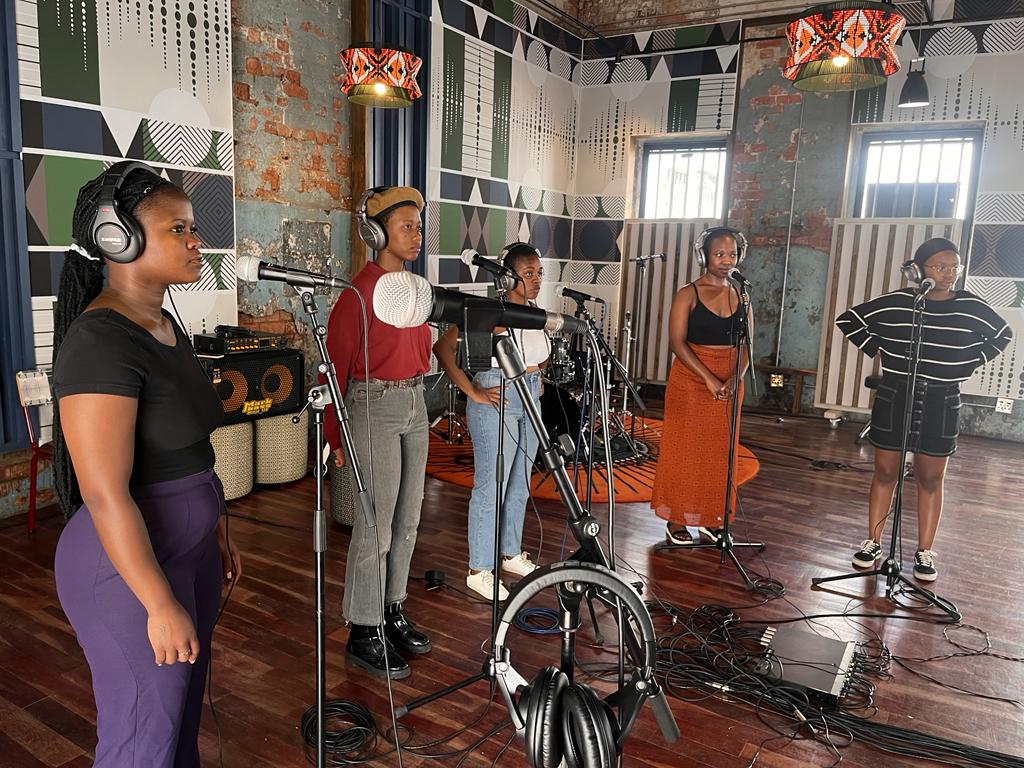Stage play Skin We Are In to tour for young audiences
It is a play adapted from a book by well known author Sindiwe Magona
By CityLife Arts Writer
“Children are born with the innate ability to want to live, learn and adapt. If anyone can learn to look beyond small differences, to appreciate variety and value people for who they really are, it’s them,” says Dr Sindiwe Magona, on why the play is a must- see for young audiences. Skin We Are In, a play based on the book by Dr Sindiwe Magona and Nina Jablonksi (Published by New Africa Books), adapted for the stage by award-winning playwright for young audiences, Omphile Molusi, will be brought to life by KwaSha! Theatre Company.
The play will travel to primary and high schools in March and April this year, performing to 12- to 15-year-olds (Grades 6 to 9) in Johannesburg. The purpose-trained Kwasha! actors will facilitate a post-performance discussion as part of the package and children’s theatre expert, ASSITEJ South Africa will work with the Origins Centre and Finding Your Roots (https://www.fyrclassroom.org/) to create a curriculum-aligned teacher resource pack on the themes of the play.

“Children are born with the innate ability to want to live, learn and adapt. If anyonecan learn to look beyond small differences, to appreciate variety and value people for who they really are, it’s them,” says Dr Sindiwe Magona, on why the play is a must- see for young audiences.
“Performances of Skin We Are In will allow more young people access to thevaluable research and content that already exists in the book and inspire teachers to change the conversation about skin colour, to grow healthier attitudes.”
The book, available in all 11 official languages, challenges the way skin colour has been used negatively throughout history and especially in Apartheid South Africa. Dr Magona notes that science has been abused to create devastating laws that judge and discriminate based on skin colour, when in reality skin colour is, “only 0,001% (1000th of a percent) of where humans come from.”
“The book will begin to make us uncomfortable enough to know that we have a job to do,” says Dr. Magona. “Everybody in South Africa if you grew up here, has been touched by apartheid, and for healing to happen we need to come together and read books such as these. We’d like this book to help change the conversation around some difficult topics…to get children to think about something that is beautiful, natural, and badly misunderstood.”
If parents wanted to have these conversations with their children, they’d be advised to avoid the idea that children can’t see skin colour. Rather, they should unpack ideas like social construct vs skin colour, race vs skin colour, how terminology creates categories, issues of control and power, as well as the fact that diversity and variation are essential for our survival. These complex ideas are brought to life by the writers and the production team.
Dr Magona is a well-respected author, poet, playwright, motivational speaker and storyteller in South Africa. Among her internationally acclaimed works are Beauty’s Gift; Living, Loving, and Lying Awake at Night; To My Children’s Children. Her plays include I Promised Myself a Fabulous Middle-Age and Vukani. Magona is the recipient of numerous awards and has contributed immeasurably in various capacities to the work of the United Nations (UN), an organisation she served for 20 years. She is also recognised for her work in women’s issues, the plight of children and the fight against apartheid and racism. Ms Magona is the founder and Executive Director of South Africa 2033. A worker for peaceful change during the years of struggle in South Africa, she was one of the founding members of the Women’s Peace Movement in 1976. In recognition of her literary and humanitarian contribution, the State President, Jacob G Zuma, conferred Sindiwe Magona with the Order of Ikhamanga in Bronze on 27 April 2011.
Dr Magona teamed up with Nina G. Jablonski, Professor of Anthropology at The Pennsylvania State University to write Skin We Are In. Her research into primate and human evolution centres on the evolution of human skin and skin pigmentation. She is concerned with understanding the history and social consequences of skin-color- based race concepts. Her work on science education for youth, led to a scholarly initiative in South Africa, with the support of STIAS (the Stellenbosch Institute for Advanced Study).
The “Effects of Race” (EOR) program brought together groups of senior and junior scholars from South Africa, the U.S., and Europe to discuss and formulate new approaches to the study of race and the mitigation of racism. Playwright Omphile Molusi turns this science-backed book into a lively text for The Kwasha! Theatre Company actors to perform.
Molusi’s plays have toured internationally as well as at home: Cadre performed at Chicago Shakespeare Theatre, Edinburgh Festival 2013, Market Theatre and Grahamstown NAF 2013. Balalatladi featured at Washington DC’s Kennedy Centre, while Itsoseng was published by Junkets publishers and Oxford University Press SA, adapted as a BBC radio play, and performed at various local and international venues including Edinburgh festival 2008.
Molusi was recognised with the prestigious ASSITEJ Inspirational Playwrights Award 2021 at the 20th ASSITEJ World Congress in Tokyo. Together with its post-show discussion and resource packs, the production promises to take difficult conversations and make them meaningful for children who are beginning to grapple with issues of difference and identity. It forms part of ASSITEJ’s ongoing and global campaign to Take a child to the theatre.










